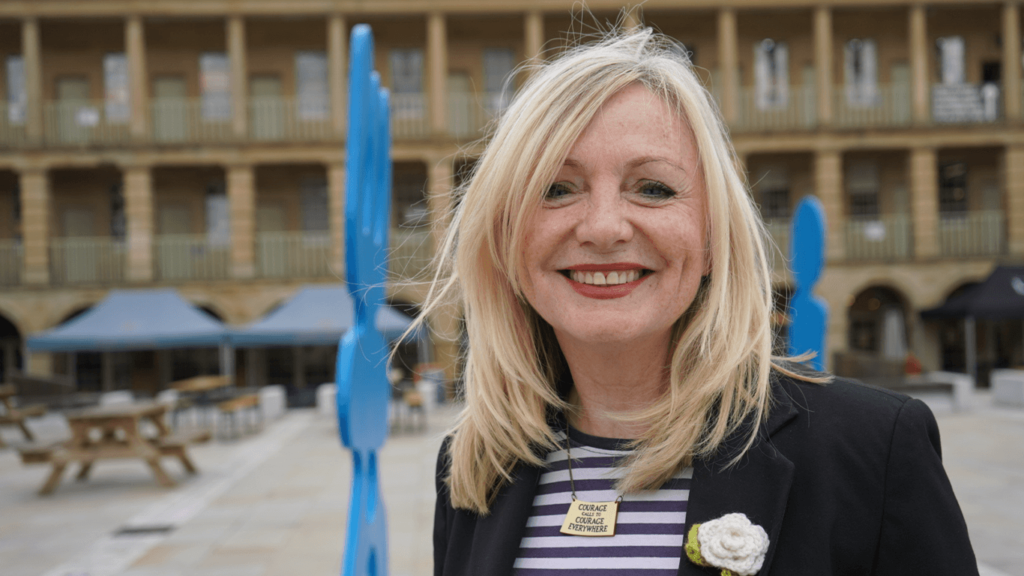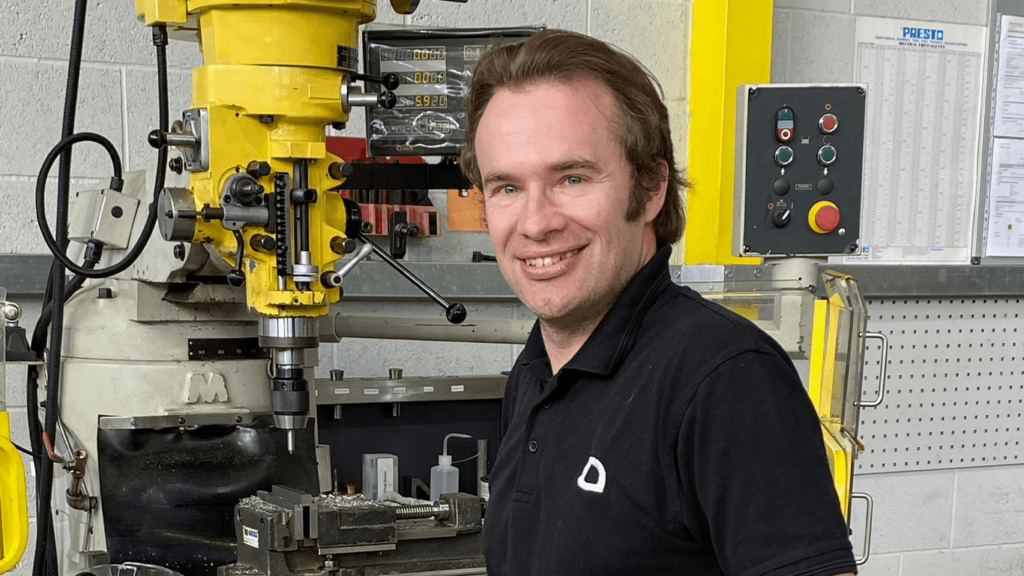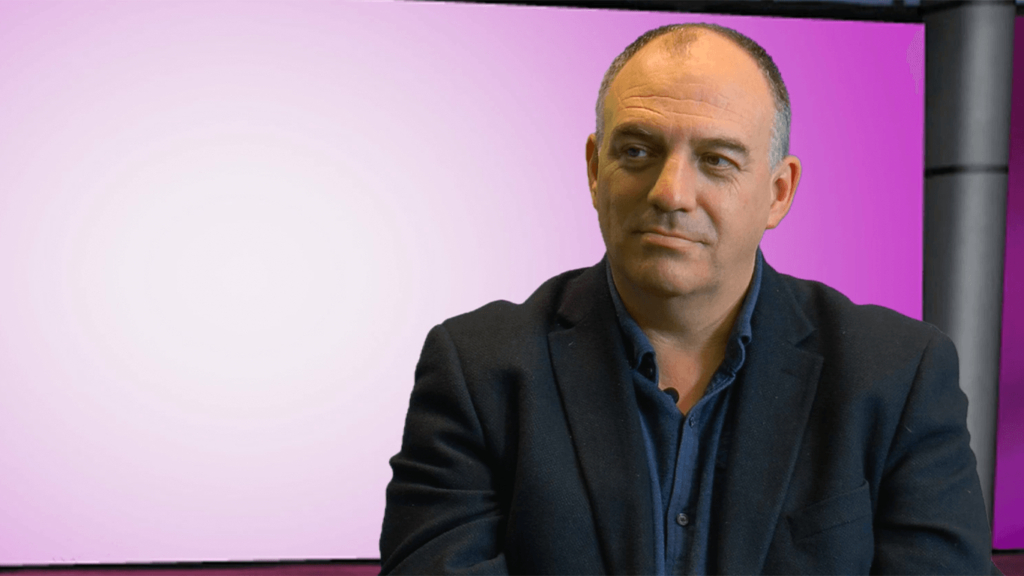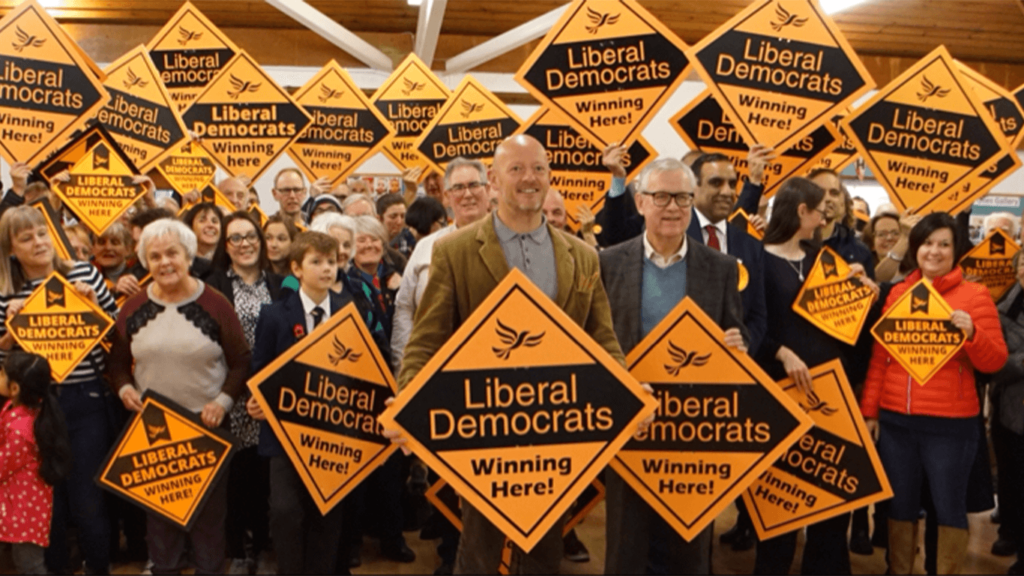By Oliver Gibson –
The campaigns of figures from around our county to be our first Mayor have accelerated quite substantially since February when the Government confirmed that the local elections would go ahead without being postponed again. Of course, were it not for the pandemic, the election would have gone ahead in May 2020 and the Mayor would currently be in their first of a four-year term.
As it stands, whoever is elected will serve a three-year term and will be up for re-election in 2024 – with whoever being elected then serving a full four-year term. This means that the election cycle for our Mayor will be in alignment with the election cycle for Greater London’s Mayor, a not-so-important but otherwise interesting bit of political trivia.
One recent development, however, has added a great deal of importance to the election.
Prior to January, West Yorkshire would have elected its Police and Crime Commissioner (PCC) for the third time. Our PCC would then be ‘absorbed’ by our Mayor in 2024.
It is now the case, however, that the office of Police and Crime Commissioner will be immediately absorbed by the office of Mayor – meaning that our soon-to-be most important elected official will be given more power to shape West Yorkshire as the voters see fit.
With this development having changed the landscape of the election quite considerably, it is now time for an in-depth pre-election analysis of each of the frontrunners’ campaigns and what they would mean both for our county and for Kirklees.
The candidates are be listed alphabetically by surname so as to eliminate the scope for bias in the ordering process.
Tracy Brabin: Labour Party

Tracy Brabin of the Labour Party. Photo Credit: Tracy Brabin
Tracy Brabin, MP for Batley and Spen since 2016, was selected as Labour’s candidate in the mayoral election by Labour Party members in December last year. Before entering politics, Brabin was known for her acting roles in three popular British soap operas – Coronation Street, EastEnders and Emmerdale – as well as writing credits for other popular shows.
Both before and during her time in the film and television industry, Brabin became involved in political campaigning and with the Labour Party. In her election video from October, Brabin noted how she raised ‘money for the miners during the strike’ and marched on Greenham Common – events that she said made her ‘learn [her] values.’
If elected, Brabin says she pledges to:
- Stand down from her role as MP for Batley and Spen.
The mayors of Greater Manchester and the Liverpool City Region both stood down as MPs when they were elected in 2017 and if Brabin also did so this could perhaps set a new precedent for elected ‘metro mayors’ to step down as MPs. Due to the Mayor assuming the powers and absorbing the office of our PCC, legally she would have to stand down as an MP due to laws forbidding PCCs from also being MPs, as confirmed by her team.
- ‘Build on’ what she says are the successes of the Labour Party, stepping ‘in where the government failed – keeping people safe, delivering test and trace, providing PPE, rolling out vaccinations and feeding school children when the Conservatives refused.’
While most would probably agree that the school meals situation was handled poorly by the Government, Brabin’s claim that it was the Labour Party that is responsible for the vaccine rollout in the UK is questionable. Nevertheless, the test and trace system has been criticised since its inception by people in many different political parties. Starmer stated back in September that the system was on the ‘verge of collapse,’ with ‘two thirds’ of people at the time ‘not being reached by the service.
- ‘Lead our recovery’ as a county out of the pandemic, refusing to ‘go back to business as usual’ due to the pandemic laying bare ‘stark inequalities in West Yorkshire – on health, on employment, on access to education,’ with ‘the poorest’ having been the ‘hardest hit and the most exposed.’
While the pandemic (or rather successive lockdowns and coronavirus restrictions) has certainly decreased the disposable income of many people around the country, these inequalities were not invisible to many in our county before the pandemic. Pedantry aside, Brabin highlights here what could very well be a key, deciding factor to her campaign – and if her team is able to continue arguing this point, they could well reap the rewards at the ballot box.
- ‘Bring buses back under control, simplify fares and fight for smart ticketing.’
This will no doubt be a popular point to any voter who uses public transport, even if they use it sparingly. Our buses employ a wide variety of tickets and it can be confusing as a consumer to understand which one is the best value for money, though it is generally the case that, if one travels often on buses, it is worth paying for a week or month ticket in the long run. As for prices, consumers have seen many price hikes in the last few years alone, taking more money out of their pockets and potentially decreasing the amount of money they are willing to spend in other sectors of the economy.
- ‘Create 1000 well paid, skilled jobs for young people and prioritise skills and training’ so ‘everyone is equipped to get good jobs.’
Brabin also promises to be a ‘champion’ for ‘working people and local businesses,’ who have in her eyes ‘borne the brunt of the Chancellor’s neglect.’ While the Chancellor argued that the Government’s furlough scheme has been ‘one of the most generous schemes in the world’ it has of course led to the real-term income of many millions of people actually going down during the pandemic.
However, if no such scheme was employed by the Government then it is quite possible that many of those workers would have lost their jobs. The Government’s business support grants have also gone some way as to address the huge loss of earning felt by businesses across the country – however many people blame the lockdowns for their loss of earnings and, of course, it was the Government that introduced those policies. As far as electioneering goes, one can never promise to create too many jobs, though of course, we do not yet know which sectors Brabin is aiming to create these skilled jobs in.
Bob Buxton: Yorkshire Party

Bob Buxton of the Yorkshire Party. Photo Credit: Bob Buxton
The leader of the Yorkshire Party, Bob Buxton, is serving as that party’s candidate in the mayoral election in May.
Buxton, who described himself as being ‘politically homeless’ before the creation of the Yorkshire Party in 2014, was elected that party’s leader during the first lockdown in May 2020. The Yorkshire Party currently holds seven seats on councils in Yorkshire and is headquartered in Wakefield. Buxton serves as one of those Councillors in Rawden, Leeds.
Buxton’s campaign, as explained on the Yorkshire Party’s website, will be fought on a ‘platform of fighting for stronger, better-funded devolution for Yorkshire – OneYorkshire devolution.’
This brings an earlier debate between local figures and Westminster over the topic of devolution in our region back to light – while many campaigned for devolution to be delivered on a Yorkshire-wide level, with a regional assembly or parliament being created, it was eventually agreed in March 2020 that a mayoral office for West Yorkshire would be created instead.
This of course meant that West and South Yorkshire would have their own ‘Metro Mayors’ but the rest of Yorkshire would be without devolved representation. To say that, Yorkshire and the Humber is a region spanning 15,420 square kilometres with a population roughly equal to that of Scotland and a GDP of £142 billion, roughly twice that of Wales. This means that only 3,558,000 of those people in Yorkshire will have devolved representation.
Scotland and Wales both have their own devolved legislatures, based in Edinburgh and Cardiff respectively, due to Tony Blair’s pursuit of devolution during his time in office and yet, Yorkshire, a region which is comparable with either one in various aspects, has no such representation.
Buxton’s campaign, therefore, does shine a light on an important issue to the region. Buxton asserted on his Party’s website that, ‘should a much lesser form of devolution be forced through’ (as has happened), the Party would ‘work hard to make the most of the limited powers and budget on offer to improve West Yorkshire’s transport, housing, education, environment, health and much more besides.’
Buxton also asserted that ‘a Yorkshire Party mayor will have no Westminster interference’ and ‘no hidden agenda’ and would ‘work passionately to improve the region we live in and love, to deliver what the people of West Yorkshire tell [the Party] they want.’ This could however mean that, if elected, Buxton would be politically isolated from Parliament and from the other ‘metro mayors’ given that no Yorkshire Party politician currently occupies any seats other than in councils in Yorkshire.
In a move that is perhaps unrelated to the wider debate around devolution, Buxton has pledged to ‘end’ the ‘red light zone’ in Leeds, claiming that he would ‘make families safer and prioritise communities, not prostitution.’
While many have espoused views similar to this, and while there is no evidence that Buxton intends to put workers at risk, the consequences of such a unilateral move could include hundreds of workers in that field having to instead work in unsupervised environments, quite possibly increasing the risk of them being subjected to violence on a regular basis, leaving people who already work in an often dangerous sector even more open to abuse.
This pledge, therefore, could easily divide public opinion and spark a wider debate about the treatment of sex workers in our county and in Britain in general.
The Yorkshire Party is currently offering ‘free trial membership’ until the end of August this year so as to ‘build an army to beat the London-based parties.’ The extent of the Yorkshire Party’s success in this election remains, of course, to be seen, but they have already left a sizable impact on the election – especially given their minor-party status.
Andrew Cooper: Green Party

Andrew Cooper of the Green Party. Photo Credit: Kirklees Local TV
Andrew Cooper was selected as the Green Party’s candidate in the mayoral election in September last year.
Cooper also serves as a Councillor for Newsome in Kirklees and stood in the Huddersfield constituency in 2010, 2015, 2017 and 2019 general elections. Coincidentally, Newsome ward is currently represented by the Green Party in all three of its seats on Kirklees Council.
A sizable and important pledge of Cooper’s is that, if elected, he would voluntarily reduce his wage as Mayor. While the salary has not yet been confirmed, it is thought that it would be roughly equivalent to the wage provided to the Mayor of Greater Manchester, Andy Burnham.
According to Yorkshire Live, Cooper ‘pledged to accept a salary of just £26,000’ if successfully elected as West Yorkshire’s Mayor – as compared to the proposed salary of ‘£105,000’ which Cooper said he would be ‘embarrassed’ to receive.
On the topic of wages, Cooper has signed and publicly backed the ‘Mayor’s Pledge.’ This pledge argues for the creation of pilot Universal Basic Income (UBI) schemes across the country. UBI has been the subject of political debates for quite some time now, on both sides of the Atlantic – with Democratic Candidate Andrew Yang arguing for the creation of one during his Presidential Campaign.
Simply put, a UBI would provide to everyone, regardless of income, a sum of money each year for them to spend on what they see fit. Different proponents have of course proposed wildly different sums of money to be provided, but the Mayor’s Pledge has thus far not stated what they intend that sum to be.
The Mayor’s Pledge argues that ‘the pandemic has shown that our welfare system is not fit for purpose’ and that this system has allowed ‘millions of people’ to fall ‘through the gaps in the government’s support packages,’ with ‘families across the UK’ facing ‘poverty and hardship for the first time.’
Further to this, the Pledge claims that ‘after decades of underinvestment, cities in the north are falling even further behind the south.’ This last claim is fairly uncontentious given that the Government’s ‘Level Up’ scheme is targeting quite a sizable portion of its investments into the North.
According to the Pledge, a UBI ‘could be a big part of the solution’ to this problem and could go some way to addressing some of the inequalities it claims has plagued societies around the world for too long. The Pledge also claims that ‘mayors from around the world, from Catalonia to California,’ with ’18 councils across the UK, plus the Welsh Senedd’ passing ‘motions calling for a pilot in their areas’ and the Scottish Government has ‘funded a world-leading feasibility study’ into such pilot schemes.
Cooper has also come out in favour of a flood risk reduction scheme in Mytholmroyd, Calderdale. This scheme, called ‘Slow the Flow,’ recently released a report on its website, slowtheflow.net, which called for ‘many small-scale interventions, taken together’ to ‘reduce peak flows’ and reduce the ‘scale and damaging effects of flood events.’ This scheme will no doubt be of great interest to those affected by the floods in 2015/2016 – where Elland Bridge collapsed – and in 2019.
Watch KLTV’s mayoral candidate interview with Andrew Cooper here
Stewart Golton: Liberal Democrats

Stewart Golton (Centre) of the Liberal Democrats. Photo Credit: Stewart Golton
Stewart Golton was selected as the Lib Dem candidate for Mayor of West Yorkshire in December 2020. Golton currently serves as the leader of the Lib Dem group on Leeds City Council and is a Councillor for Leeds.
Golton’s top policy priorities include:
- A ‘complete refocus around the areas of transport, housing and economic development and adult education.’
This promise seems to be a well-calculated one, given that it applies to so many economic sectors and covers many different political campaigns in one stroke. On the topic of transport, there is definitely much to be done in our county – such as replacing our outdated rail stock, protecting the dwindling number of train services, preventing costs to the consumer from increasing yet again, and building a new bus station in Halifax.
However, most of these examples are largely the responsibility of the private companies that run transport services in our county, and some of this work is already underway. Still, Golton’s promises in this regard may well advance his campaign quite considerably.
- Developing ’15 minute neighbourhoods’ to ‘revive our town, district and village centres to harness the potential of homeworking to rebalance economic growth in our region.’
15 Minute Neighbourhoods are a concept in city planning found, as the name suggests, in locations where a resident can access all of their basic amenities within a 15-minute walk from where they live.
This promise could well be popular given the receding High Streets found in our county and especially given that there is currently talk of converting empty shops in town centres into housing – a move that would decrease economic productivity, cut jobs, take money out of the pockets of consumers and make our towns obsolete. A recent YouGov poll found that public reaction to this question was mixed, however.
- Ending ‘public transport spending that allows private bus companies to increase their profits, whilst doing little to address unreliability and rising prices for passengers.’
Consumers of public transport often have to endure rising ticket prices on bus and rail routes and it does seem as though a large group of consumers resent such changes.
An article by the Yorkshire Evening Post from 2019 explained the public reaction to the ‘First Bus price hike’ of that year, with the headline reading ‘prices go up but the service goes downhill.’ Such a promise from Golton might well prove to be a vote winner especially given the fact that so many people have seen their disposable income drop due to the pandemic.
- Growing ‘green jobs for the future’ in order to ‘tackle the Climate Change Emergency.’
Golton argues that the ‘West Yorkshire rural economy has been overlooked for too long’ and that we, as a county, should ‘get more of our food grown locally, help farmers generate more renewable energy, increase our tree cover and develop local leisure tourism.’
According to a Department for Environment, Food & Rural Affairs report from 2019, the farming sector grew by ‘26%’ in income between 2015 and 2019 and the average farm in Yorkshire and the Humber is 107% the size of the average farm in England. While it is indeed important to note that the report concerned the whole of Yorkshire and the Humber and not just West Yorkshire, the report nevertheless demonstrates the important nature of the agricultural industry to our region and also how this sizable industry could assist, or continue to assist, with environmental efforts in the future.
- Getting ‘more zero-carbon housing built by local building companies developing homes that people can afford.’
If there’s one thing that prospective first-time buyers need after the pandemic, it’s affordable housing. That would get those buyers onto the housing ladder for life and, crucially, free up rented flats, houses and accommodation for other renters. It would also provide a boost to the housing industry, which has suffered many setbacks during the pandemic.
Many politicians, however, continue to pledge that houses will be built and yet it feels as though little is achieved in regard to this – with the Government coming under fire from critics last year for an apparent lack of new homes being built. However, it is a popular policy that could advance Golton’s campaign.
- Insulating ‘as many young people as possible from our region from being sucked into the criminal justice system in the first place.’
While crime can be a difficult vote-winner at times, given the many different approaches to tackling criminality, rehabilitation and punishment, Golton’s plan in this regard could, if implemented, keep young people off the streets and out of crime. This would no doubt improve life for many people in West Yorkshire and set an example for other areas in the UK, though of course, it would be quite the task to accomplish.
Matt Robinson: Conservative Party
So all the candidates confirmed.#Matt4Mayor = creating decent local jobs, new apprenticeships, new opportunity areas, helping businesses & start ups, more police with extra powers & better equipment, clean green & on time transport, no new local taxes, no congestion charge. https://t.co/dxLCsuaaFR pic.twitter.com/AVukFuLDxz
— Matt Robinson (@MrMatt_Robinson) April 8, 2021
Matt Robinson, a Councillor in Leeds since 2010, was selected as the Conservative candidate for Mayor in February this year in an online meeting of West Yorkshire Conservative Party members.
In a self-penned article in the Yorkshire Post, Robinson listed his chief priorities as follows:
- Supporting the Opportunity Area in Bradford and ‘improving the life chances of young people.’
Bradford is included in a list of twelve ‘Opportunity Areas’ by the Department for Education (DfE) and many of those areas are also found in the North of England. In the Delivery Plan for Bradford, the DfE stated that the aims of the policy were to strengthen the quality of teaching in schools, improve literacy in primary schools, improve access to careers and remove barriers to learning for Bradford’s pupils.
- Creating Opportunity Areas across all of West Yorkshire – one each in Kirklees, Calderdale, Wakefield and Leeds.
According to Robinson, these Opportunity Areas would ‘help share best practice and knowledge among our schools and teachers.’
- Bringing ‘universities, colleges, Further Education establishments, charities, councils and others’ to ‘improve the skills of our workforce.’
Robinson also aims in this effort to ‘seek local regeneration opportunities such as new housing on brownfield land, support for start-up businesses’ and to improve transport links.
- Ensuring that recruitment to the Police force continues in order to address and combat the increase of violence directed at the police.
According to Robinson, in ‘2019/20 there were over 2,000 assaults’ on police officers in our county – up ’15 per cent from the previous year.’ Currently, as part of the Government’s longstanding pledge to increase recruitment into the police – following years of decline under David Cameron – by training 20,000 police officers, some ‘400’ have been recruited in our county so far.
Further to this aim, Robinson stated his belief that ‘all frontline officers’ should be ‘trained and equipped with a taser.’ According to Robinson, this would give police officers the ‘confidence’ needed to ‘keep our streets safe.’ This could no doubt increase the police’s ability to combat crime, though it is likely that some would protest against such a move given the recent ‘kill the bill’ protests in cities and towns across the country.
Robinson also aims to combat countryside crime, promising to ‘renew and reinvigorate schemes like FarmWatch.’ According to Robinson, it is ‘too often’ the case that ‘our farms and rural communities’ are ‘seen as easy targets for criminals engaged in county lines, drugs, burglary and theft.’
According to a Government report from August 2020, rural crime rates are lower than urban crime rates – with the rate of violence against the person for 2019/20 being 23.1 per 1,000 people in rural areas and 30.4 per 1,000 in urban areas.
However, crime clearly is a problem in rural areas and a number of legal cases serve as examples of crime moving from urban to rural areas, with the infamous R v Martin [2002], or ‘Tony Martin case,’ being among the most well-known.
While ‘the new Mayor has the power to levy new taxes on households,’ Robinson has pledged that, if he was elected, ‘there will be no new local taxes.’ Further to this, Robinson stated that West Yorkshire local authorities ‘need to spend what we have better’ and ‘ensure projects don’t run over budget.’
Robinson has also asserted that our county needs a Mayor who is ‘willing to work with others to get the people of West Yorkshire the best deal’ instead of using ‘the mayoralty as their political megaphone to seek an argument with the Government.’ This was perhaps a swipe directed at the Mayor of Manchester, Andy Burnham, who famously jousted with No. 10 back in October last year over the issue of the Covid-19 pandemic.
Conclusions
Local elections are often plagued by a low turnout, with roughly only half as many people voting in local elections as do in general elections. While this is an issue that needs to be addressed by those in local and national politics, for this campaign a low turnout could mean that anything is possible in the Mayoral election.
The stakes could be perceived as being lower in the local elections than in the general election. This could well cause many voters to not cast their ballots in this election and it could cause others to switch party allegiance. If enough voters from one or more parties switched their allegiance or chose not to vote, we as a county could end up seeing a result that looks nothing like the 2019 general did for us.
It is also entirely possible that many thousands of people are not yet aware that we are electing a Mayor for the first time ever as a county. This means that no candidate should take their position for granted. It also means that no voter should believe that their favoured candidate could not be elected. In the end, the best way to further your favourite candidate’s campaign is to spread their message and, crucially, to get out and vote on the 6th of May.















